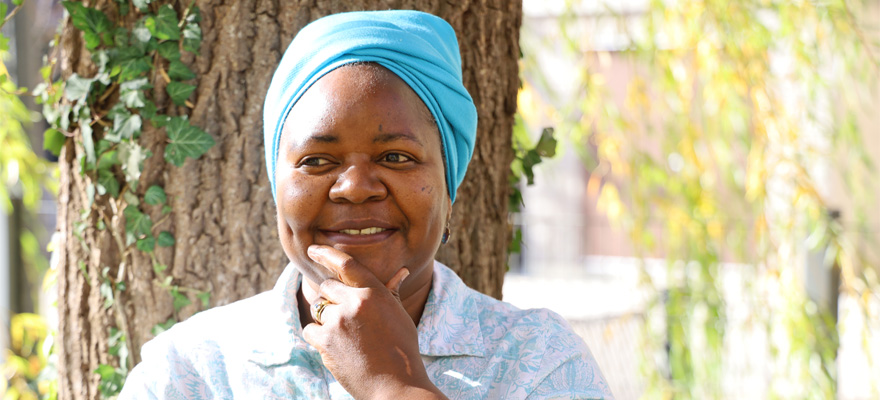News and Updates
Contact
Faculty of Social Science
Social Science Centre
Room 9438
Western University
T. 519-661-2053
F. 519-661-3868
E. social-science@uwo.ca
Considering history and memory through the concept of ‘deep time’
November 29, 2022
Story and photo by Rob Rombouts
For Ruramisai Charumbira, understanding history means not only being bound by dates and themes, but also considering history and memory through the concept of ‘deep time.’
Charumbira recently joined the department of History at Western University as an associate professor. Her work has focused on southern Africa, and events from 1500 to the present. However, Charumbira says her research goes beyond this categorization. Her approach to history is grounded in the idea of Hunhu or Ubuntu, a sense of seeing ourselves as part of a larger human community and the planet.
“Something may have happened in, say, the summer of 1565, but has roots before then and still has branches and impacts today,” said Charumbira. “We are all a product of history. What happened in the past has echoes today, and what we do, will impact the future and whether we become good ancestors for future generations.”
In her research and teaching, Charumbira aims to foster an engagement with public humanities and social sciences with the intention that history has to have more public use.
“How do I find, within my research, that which the rest of humanity can look at and find something that can resonate with them,” she said. By examining history from a different viewpoint, she hopes people may be open to conversation, and to new worldviews of how to do history.
Charumbira will be teaching two courses in the winter term.
In “Resistance to Apartheid in South African and Global History”, she hopes to honour people who resisted apartheid, but also provide understanding of the resiliency of racism in history.
While the South African Apartheid regime ended in 1994, “the structures that racism built before and after apartheid still live on around the world” she said. “This deep racism needs to be spoken to in the classroom to understand how it has historically impacted people and what we can learn today.”
She will also teach “Uncolonized Histories" a course focused on Indigenous knowledge systems that survived Western “scientific” attempts at epistemicide toward humans and nature globally.
Charumbira expects the subject matter and teachings in her second class may make some students uncomfortable, but she hopes it invites everyone to be reflective, rather than defensive, when considering the subject matter from different viewpoints. This leads to a ‘generative tension’ that invites continued conversation and community, rather than conflict.
“This is a way to expose students to these ideas, not for appropriation, but to provide understanding and teach intellectual humility,” she said. “This is also not about replacing one way of seeing and being in the world with another, but about offering a multiplicity of ways of knowing and understanding the world.” Through her courses, Charumbira hopes to provide students with skillsets and toolkits for going into the world to make a difference with confidence and humility.
“How do we make society remember without trying to placate people?” Charumbira asked. In response, she hopes everyone can have ‘ancestral conversations’, to ask and understand from their dead, what they did, and why.
“We need to have ancestral conversations – instead of thinking about it as just the past and closing ourselves off to the impact of that past,” she said. “If we don’t bring in other ways of knowing, we are limiting our understanding, and limiting the methods available to us to solve problems created in the past.”

